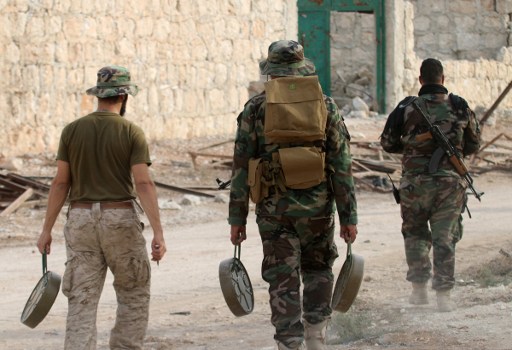For 5½ years, the Syrian regime has tortured, shot, bombed and gassed its own people with impunity, with the resulting human cost clear for all to see: nearly 500,000 dead and 11 million displaced. Since Russia’s military intervention began one year ago, conditions have worsened, with more than 1 million people living in 40 besieged communities. Thirty-seven of those are imposed by pro-regime forces.
While subjecting his people to unspeakable medieval-style brutality, Bashar al-Assad has sabotaged diplomatic initiatives aimed at bringing a lasting calm to his country. The most recent such diplomatic scheme was trashed not just by Assad, but also Russia, whose aircraft were accused of subjecting a U.N.-mandated aid convoy to a ferocious two-hour attack in September.
Since then, at least 2,500 people have been killed and wounded in eastern districts of Aleppo, amid horrendous bombardment by Syrian and Russian aircraft, and Russia cynically vetoed a U.N. resolution that would have prohibited further airstrikes in the city.
It is time for the United States to act more assertively on Syria, to further four justifiable objectives: to end mass civilian killing; to protect what remains of the moderate opposition; to undermine extremist narratives of Western indifference to injustice; and to force Assad to the negotiating table. The United States should not be in the business of regime change, but the Assad clique and its backers must be brought to account before it is too late. The world will not forgive us for our inaction.
The consequences of continued inaction are dreadful. U.S. policy has never sought to decisively influence the tactical situation on the ground. Unrealistic limitations on vetting and a policy that prohibited arming groups to fight the regime left us unable to effectively fight ISIS or to move Assad toward a transition. U.S. policy and strategy on Syria had a major disconnect, in being focused militarily on a group that was a symptom of the civil war without any means to achieve the stated policy objective: Assad’s departure.
The hole in this strategy could only have been filled by a comprehensive train-and-equip program for moderate Syrians to fight ISIS and decisively resist regime forces. Sadly, we have allowed this connective tissue between our counter-ISIS strategy and our policy to remove Assad — the moderate Syrian opposition — to come under sustained attack by the regime and Russia.
For years we’ve said there can be no military outcome in Syria, but the Russians and their allies have pushed the military dimension of the crisis to strengthen the regime’s political position and, in the name of fighting “terrorism,” to systematically eliminate the opposition, including moderate Syrians we judged should be part of the political process of transitioning Assad out. These objectives were derived from our unwillingness to tangle with the regime, and now also the Russians.
To save Aleppo, the United States and its allies must both accelerate and broaden the provision of lethal and nonlethal assistance to vetted moderate opposition groups. This assistance would aim to empower other frontlines in northern and southern Syria to force pro-regime forces to divert attention from Aleppo. Opposition groups should also be provided with the means to bombard regime military airfields, many of which already lie within indirect fire and artillery rocket range.
Initiating such a sequence would almost certainly result in the eventual use of targeted, punitive force in Syria.
Any action should target Syrian military facilities and assets involved in supporting the bombardment of civilians, such as military airfields, aircraft, weapons stores and artillery positions. We should expect the possible intentional co-mingling of Syrian and Russian forces and assets as a deterrent. While this may complicate targeting strategies, we should not miss the opportunity to hit offending Syrian elements and units, while sustaining counter-ISIS operations elsewhere.
The credibility of the United States as the leader and defender of the free world must be salvaged from the horrific devastation of Syria. It is not too late to enforce international law and norms.
The Washington Post
